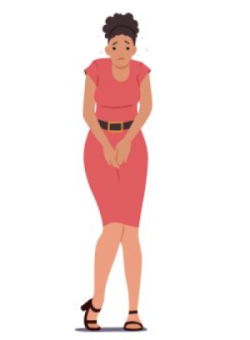
Understanding paruresis
Does the thought of using a public bathroom scare you? Shy bladder syndrome, or paruresis, is more than a minor inconvenience; It represents a major performance anxiety disorder that affects countless people. It is estimated that between two and seven percent of the population may face this challenge and experience a spectrum of anxiety levels that can significantly limit their activities.
The main characteristics of shy bladder syndrome
Shy bladder syndrome includes:
- Intense stress and anxiety: The fear of urinating in public dominates the thinking and feeling of an individual.
- Hypervigilance: there is excessive attention to the sensations of the bladder.
- Emotional toll: Shame, embarrassment, and isolation are common feelings.
- Avoidance and safety behaviors: Strategies to avoid public bathrooms and potential embarrassment often reinforce anxiety in the long term.
- Impact on quality of life: Career choices, social commitments and personal freedom are often restricted by fears.
CBT strategies to overcome paruresis
Specialists treating paruresis often employ evidence-based cognitive behavioral therapy (CBT) techniques, including:
- Selective disclosure: Encouraging openness with trusted people can significantly reduce the burden of secrecy.
- Gradual exposure therapy: consists of personalized exercises to introduce people to feared situations, gradually increasing their comfort with public bathrooms.
- Mindfulness and Acceptance: These techniques aim to better manage anxiety and reduce avoidance behaviors.
- Cognitive restructuring: This process involves addressing and reframing negative thought patterns related to toileting.
- Behavioral experiments: These strategies involve confronting fears directly to challenge and change unhelpful beliefs.
- Reduce safety behaviors: This strategy focuses on decreasing reliance on behaviors that may temporarily relieve anxiety but perpetuate the condition in the long term.
The importance of seeking support
Recognizing that shy bladder syndrome is a widespread problem is the first step toward change. Many people suffer in silence, for fear of being judged and misunderstood.
Engaging in therapy and seeking support can be crucial steps in effectively managing shy bladder syndrome. Anxiety-focused psychologists and therapists, and especially those with specialization in social anxiety and performance anxiety, can provide specialized care and strategies to overcome this condition, either in person or through telepsychology.
Improving their quality of life
Effectively addressing shy bladder syndrome can substantially improve your quality of life, allowing you to make decisions based on your true desires rather than anxiety. From taking advantage of new job opportunities to traveling the world, overcoming paruresis opens the door to a world of possibilities.
Questions for reflection and debate:
- Have you ever avoided certain activities or opportunities because of shy bladder syndrome?
- What coping strategies have you tried and what was their impact on your condition?
- How might increased public awareness of shy bladder syndrome influence social perceptions and support for those affected?
With a comprehensive understanding of shy bladder syndrome and access to effective treatment strategies, people can regain their independence and participate more fully in their lives. If you are struggling with paruresis, remember that you are not alone and help is available.
Begin your journey toward empowerment today by exploring the resources provided by ADAA and the International Paruresis Association (IPA) and consider seeking professional support.
For people in the Philadelphia area looking for more detailed information and resources on managing shy bladder syndrome, you can find them on the Center for Anxiety, OCD, and Cognitive Behavioral Therapy’s shy bladder page at https://anxietyocdphilly.com/overcoming-shy-bladder-philadelphia/.





%20(Website)_0.png)
